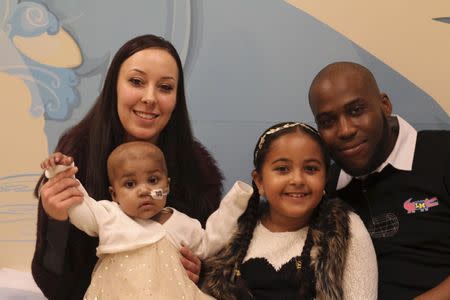After decades of back and forth about the pleasures and perils of our favourite morning imbibation, it finally transpires that science is confirming once and for all that knocking back a few mugs of Joe is rather good for us! That dark, tasty liquid many of us kickstart our day with is not just laced with caffeine, which itself has antioxidant properties, but there are a slew of other beneficial compounds in there as well.
After a recent spate of news items about the benefits of coffee, for those who drink a few cups of coffee each day comes data from a much more significant study (published yesterday online) suggesting that not only does coffee reduce our risk of Alzheimer's disease, stroke, liver disease, and Type 2 diabetes, but positively impacts our longevity in general. This is not surprising to me, having worked in a biotech company focused on age-dependent diseases - if you impact the aging process itself, then you can slow down the onset of age-dependent diseases - and if those diseases limit one's lifespan, then delaying their onset will lengthen one's life!
Where the matter remains less clear is the quantity of caffeine that is good for us, not least because there are so many variables in both the type of coffee and the brewing process used that comparing your cup of coffee to mine might not be possible. Additionally, and perhaps surprisingly, the authors in this most recent study saw the same benefits between regular and decaffeinated coffee; while this does not mean that caffeine is not beneficial, it clarifies that the major benefit is probably derived from other compounds.
This could go some of the way to explaining diverging opinions on the benefits of caffeine itself, if measurements were made of just caffeine levels in a beverage, regardless of what other components were involved. The various components in coffee presumably contribute together to the observed benefits, and if caffeine is unusually high then it is possible that things get out of balance, and possible detrimental effects occur. But for those who cannot give up their cup of Joe and who switched to decaffeinated coffee for health reasons, well, it could be that they have unwittingly found their very own fountain of youth!
The authors involved in this large, ongoing study involving three cohorts and hundreds of thousands of individuals (and substantial follow-up analysis over some 30 years) offer some suggested mechanisms for the observed beneficial effects of coffee. They state that the chlorogenic acid, lignans, quinides, trigonelline and magnesium in coffee contribute to reduce both systemic inflammation and insulin resistance, and this would quite clearly be beneficial for both diabetes and cardiovascular disease. To that end, they detected an association between coffee consumption and reduced risk of total or cause-specific mortality in the population, and that association held for both regular as well as decaffeinated coffee.
This is in more or less total agreement with an earlier study (hundreds of thousands of people) reported in the New England Journal of Medicine which also proved the association between coffee consumption and longevity. It is clear in the figure below that even one or two cups a day can reduce risk of death by roughly 5%, so even at the lowest "dose" the effect is observed, while those who were between 4-5 cups a day saw the most benefit. In this study, individuals who went beyond the high dose apparently began to see a reversal of the benefits.
The more recent study seemed to concur that at least there was no added benefit beyond the 5 cups a day mark, if not that it actually began to reverse the benefits observed up to that level of consumption. So it seems that those of us who hit coffee hard first thing and continue through the early morning (I am one of those types!) all the way up to 5-6 cups are probably not doing a whole lot of harm - let's put it that way - and may well be doing a bucket (or mug) load of actual good!
It is worth pointing out that such studies are observational in nature and while indeed proving an association of coffee drinking with beneficial outcomes, they do not prove a cause-and-effect link between coffee and lack of a disease or increased longevity. But perhaps the most reassuring aspect for us coffee addicts is that the work certainly seems to have put to bed some of the negative press about coffee/caffeine; even if getting to sleep in that bed remains difficult if you overdo it!
There was one confounder in the analysis and that was the combination of coffee and smoking, which is very popular with many. Not only did the study reiterate the negative effects of smoking, but it was apparent that coffee in no way made up for all of the detrimental effects of smoking, in terms of disease and lifespan, so if you do consume smoke with your caffeine, then you are back at high risk again. There's just nothing positive about smoking, and nothing is going to change that conclusion anytime soon.
So, the bottom line in 2015 seems to be that not only is regular, moderate coffee consumption not bad for you, it might in actual fact be very good for you, and coffee now firmly establishes itself on the menu of a healthy, balanced, daily diet. It's no longer a bad habit to worry over and try to refrain from, rather it is something that for a change one can smile about. Imagine, we may finally have found something that tastes wonderful and makes us feel great, and yet it is (now) not considered to be something that is bad for us?!
What is the world coming to?! We can now indulge in a formerly "naughty" habit, and potentially live disease-free for longer, and even live longer as a result?! On that note, I was kind of busy this morning and only managed 3 cups of the office Joe, so after dinner tonight I am going to celebrate this news with a small cup of my new killer Kilimanjaro Kenyan blend - that should push my meter into the 4-6 cups range today, ensuring my longevity until at least tomorrow! :)
What is the world coming to?! We can now indulge in a formerly "naughty" habit, and potentially live disease-free for longer, and even live longer as a result?! On that note, I was kind of busy this morning and only managed 3 cups of the office Joe, so after dinner tonight I am going to celebrate this news with a small cup of my new killer Kilimanjaro Kenyan blend - that should push my meter into the 4-6 cups range today, ensuring my longevity until at least tomorrow! :)




